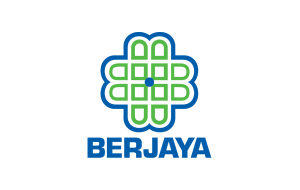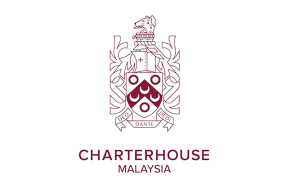Through the budget, the Malaysian government intends to adopt a more progressive tax structure to ensure fair revenue distribution and prioritize low and middle-income groups. Although there are no immediate plans to re-implement the goods and services tax due to the ongoing economic challenges, the government has proposed other measures to increase the tax base and incentivize businesses in high-impact and emerging sectors.
At the time of publication, these tax measures have yet to be passed into law.
Luxury Goods Tax
The government has proposed a luxury goods tax, starting this year, with a value limit according to the type of goods, which include luxury watches and fashion items. However, more detail and clarification is required on implementing the proposed tax, particularly concerning the price threshold, tax rates, and types of goods that will be subject to the tax.
While a tax on luxury goods may appear to be a quick option to increase revenue collection from higher-income groups, its effectiveness must be considered carefully, as its imposition is dependent on consumers’ spending habits. Consumers may opt to spend less on luxury goods or may be enticed to purchase such goods overseas where no such tax is imposed. This would potentially impact businesses’ sales of luxury items, resulting in lower revenue collection.
The risk of black market activity should also be considered when implementing a luxury goods tax. If the tax rate is too high or the price threshold too low, this may encourage black market activity as consumers seek to avoid paying higher prices associated with the tax. This may ultimately erode the tax base. The government also must consider the collection and registration mechanism for the tax and, in particular, the party responsible to account for it.
Accordingly, implementing a luxury goods tax requires considerable consultation with stakeholders to ensure that the tax is fair, efficient, and well-targeted. It is also essential to give stakeholders and consumers adequate transition time to ensure smooth implementation.
Key Tax Incentives
A host of tax incentives are announced in the budget, focused mainly on green technology, electric vehicles, and the aerospace and electrical and electronic sectors.
Carbon Capture and Storage Technology
The budget proposed various tax incentives for companies using carbon capture storage technology. CCS is a process where carbon dioxide from industrial sources is separated, treated, and transported to a long-term storage location.
Companies undertaking CCS in-house activity, undertaking CCS services, and using CCS services will be eligible for investment tax allowance, import duty, and sales tax exemption on equipment used for CCS technology, and income tax exemption and tax deduction on CCS-related expenses, among other incentives.
These incentives may be applied for with the Ministry of Finance from Feb. 25, 2023 to Dec. 31, 2027. Eligible companies may claim tax deductions through their income tax return form from year of assessment 2023 until 2027.
Electric Vehicles
Sales Tax, Import Duty, Excise Duty Exemption. The government proposed to extend the full import duty exemption on components for locally assembled EVs until Dec. 31, 2027, full excise duty and sales tax exemption on completely-knocked-down EVs until Dec. 31, 2027, and full import duty and excise duty exemption on imported completely built-up EVs until Dec. 31, 2025.
Incentives for manufacturers of EV charging equipment. Manufacturers of EV charging equipment are given 100% income tax exemption on their statutory period from YA 2023 to YA 2032. Such manufacturers also are eligible for an investment tax allowance of 100% that can be set off against 100% of their statutory income for five years.
Incentives for companies renting non-commercial EVs. The budget proposed that companies that rent non-commercial EVs be given tax deductions of up to 300,000 Malaysian ringgit ($66,700) on the rental amount from YA 2023 to YA 2025.
Incentives for Other Sectors
To attract companies to Malaysia, the government proposed extending the tax incentive to manufacturing companies that relocate—special tax rate and investment tax allowance—and the tax rate of 15% for C-suite executives until 2024. The extension also would cover the electrical and electronic and aerospace sectors.
Extension of incentives for aerospace sector. To further attract new aerospace companies and encourage existing companies to expand, the budget proposed extending the following tax incentives for a period of three years until the end of 2025.
For a new company the incentives would be:
- An income tax exemption of 70% to 100% for a period between five to 10 years; or
- An investment tax allowance of 60% to 100% for a period of five years. The allowance could be set off against 70% to 100% of statutory income for each year of assessment.
For an existing company:
- An investment tax allowance of 60% for five years, which could be set off against 70% of statutory income for each year of assessment.
The incentive is available for applications received by the Malaysian Investment Development Authority from Jan. 1, 2023 until Dec. 31, 2025.
Review of tax deduction on cost of listing on Bursa Malaysia (stock exchange). To encourage technology-based companies and micro, small and medium-sized enterprises to expand their business, the government proposed extending the existing tax deduction (up to 1.5 million Malaysian ringgit) on listing costs on the ACE and LEAP Malaysian stock markets for another three years, from YA 2023 to YA 2025. This tax deduction extends to listing technology-based companies on the Bursa Main Market.
Concluding Thoughts
As the Malaysian economy continues to recover, the government’s prudent, targeted, and inclusive approach provides an optimal balance in helping businesses navigate the ongoing uncertain economic climate. The introduction of tax incentives that promote automation, digitalization, and environmental values is a step in the right direction and is in line with global trends toward sustainable development.
This article does not necessarily reflect the opinion of Bloomberg Industry Group, Inc., the publisher of Bloomberg Law and Bloomberg Tax, or its owners.























